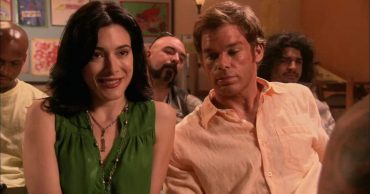Chuck Barris has died at the age of 87. Mr. Barris died of natural causes, said Paul Shefrin, his publicist, according to The Associated Press. When you talk about shows that pioneered a genre perhaps no show had more of an influence on today’s reality contest shows than “The Gong Show.” Hosted and created by the zany and eccentric Chuck Barris, “The Gong Show,” had its premiere on NBC in June 1976. The show featured a series of performers, most of them amateurs, and a panel of three celebrity judges. Mr. Barris himself was the brash, irritating host.
The performers, who were often terrible, would be allowed to go on until one of the judges couldn’t stand it anymore and sounded a gong, putting an end to the spectacle. Those who weren’t gonged were rated by the judges on a 1-to-10 scale. In keeping with the ridiculousness of the proceedings, the prize amount they vied for was ridiculous: $516.32 on the daytime version of the show, $712.05 on the prime-time edition.
Sound familiar? That’s because it is. Ever watch America’s Got Talent? How about a show like Star Search? How about Showtime at the Apollo? How about American Idol? How about any show with a panel of celebrity judges that rates talent up on the stage? You can most likely thank Chuck Barris and the “The Gong Show” for these. But it wasn’t just “The Gong Show” that had Barris’s name on it. In 1965 he was the guy that created the legendary “Dating Game.” He followed that the next year with “The Newlywed Game,” another question-and-answer show that put just-married couples’ compatibility to the test. Both shows stayed on the air into the mid-1970s and spawned assorted sequels (“The All-New Dating Game” and “The New Newlywed Game”).
According to the New York Times,
Mr. Barris gradually withdrew from the television world, selling his holdings, spending most of his time in France and turning to writing. He had already written one book, “You and Me, Babe” (1974), a novel about a television producer whose marriage failed that drew heavily on his own rocky marriage to Lyn Levy, a niece of William Paley, in the 1950s. (They were divorced in 1976.) That first book had sold well, but it was the next one that would give Mr. Barris yet another burst of notoriety: “Confessions of a Dangerous Mind” (1984), a supposed autobiography in which he claimed that while traveling in his role as a television producer in the 1960s he was also an assassin for the C.I.A.
“When you go to that great game show in the sky,” he asked himself, “would you rather be known as an author or as a TV game show producer?”
“That’s the easiest question of all,” he responded. “I would love to be known as an author, but I don’t think it’s written that that’s the way it’s going to be. I think on my tombstone it’s just going to say, ‘Gonged at last,’ and I’m stuck with that.”
Barris will be missed.
 Follow Us
Follow Us




